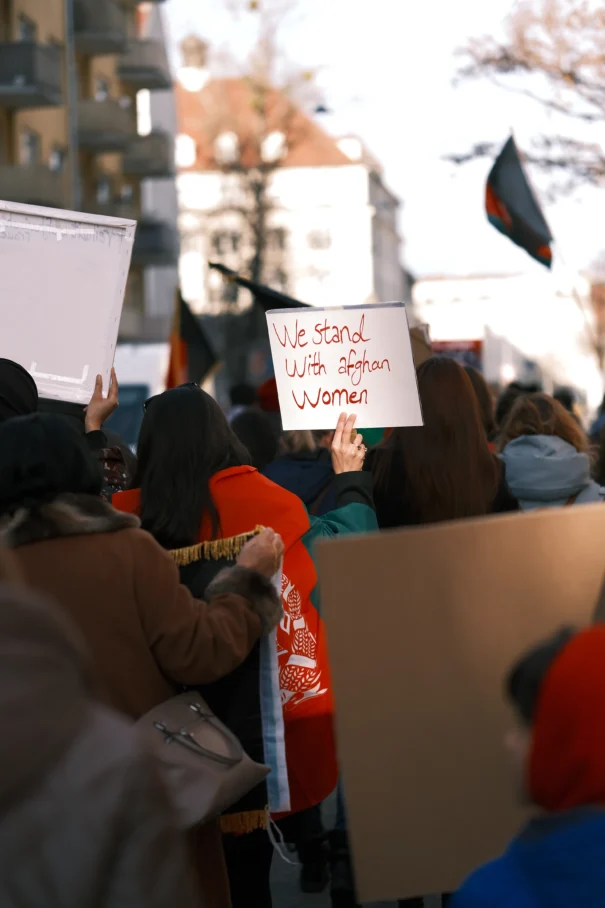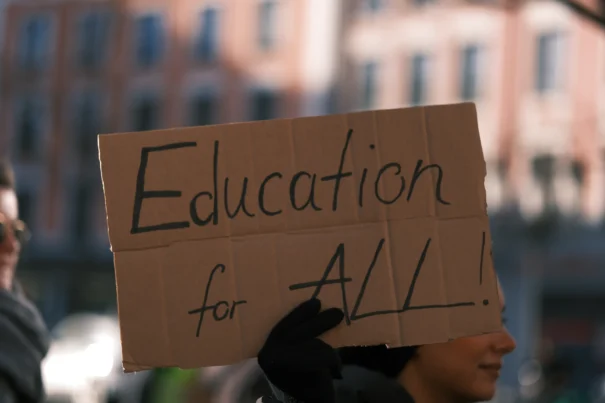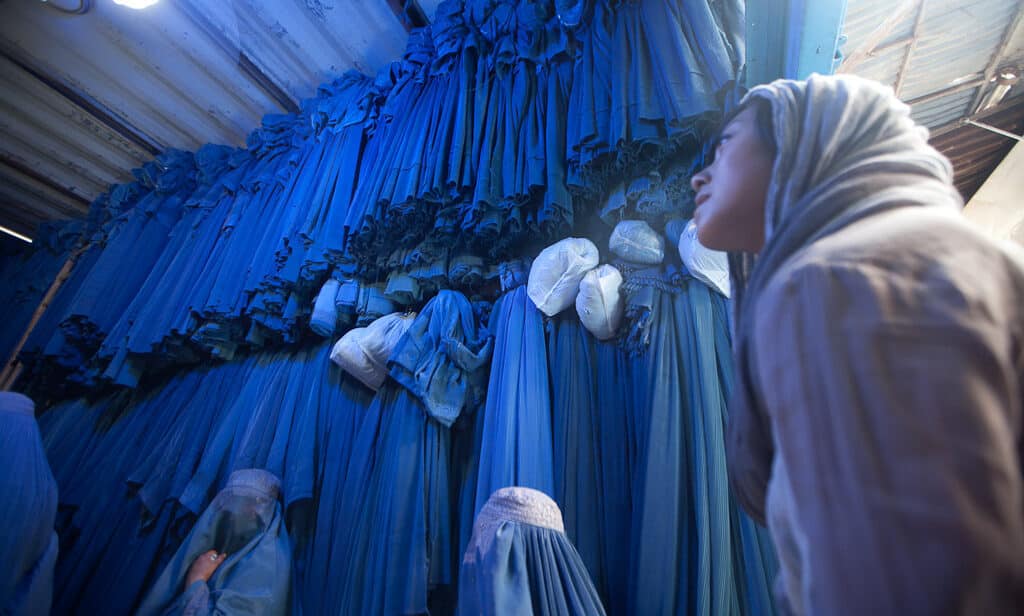On November 5, 2025, in Herat, Afghanistan, the Taliban imposed a new edict requiring women to wear a burqa before entering public hospitals. Women patients, visitors, and even medical staff must now wear a burqa to be allowed inside any public healthcare facility. A burqa is a full-body covering that leaves only a small mesh screen to see through, and it is neither rooted in religion nor traditional Afghan culture.
Under the Taliban regime, women’s access to healthcare was already severely affected by restrictive policies, movement bans, and the closure of clinics due to funding cuts. These barriers have long left women unable to seek basic medical care. The new restrictions only deepen the crisis, adding yet another layer of hardship for Afghan women who are already confined to their homes and pushed to the margins of society. The forced burqa mandate further erases Afghan women’s visibility, pushing women into even greater invisibility.
A woman in Herat shared, “This is suffocating for us.” Since the forced burqa mandate took effect, Herat has already seen a 28% drop in patient admissions for urgent care. In just one week, the number of women accessing healthcare facilities has fallen sharply.
According to Doctors Without Borders Program Manager Sarah Chateau, “Each restriction placed on women as patients translates into delayed or denied medical care. We know this will have severe consequences for children and mothers who already face enormous barriers to accessing health services in Afghanistan.” She adds that “access to care is determined by clothing rather than medical need.”
Taliban continues to harass and threaten women with violence if they do not wear their burqa or cover themselves completely. In some cases, women are being forced to purchase burqas in shops, an added financial burden at a time when many families are struggling due to widespread job losses, aid cuts, and bans on women’s employment.
Another woman explained, “It is an impossible situation for me because I’m not used to wearing a burqa.” Before the Taliban’s return in 2021, Afghan women had the freedom to choose their clothing and move through society without such restrictions.
The Taliban’s burqa mandate is not merely a dress code; it is a mechanism of social and political control designed to undermine women’s rights, including their freedom of movement and access to healthcare. Places like hospitals, once considered safe spaces for healing, have become sites of fear and oppression. While Herat has already recorded a 28% decline in women seeking care, the long-term consequences are far more alarming for a country already grappling with maternal and child mortality and widespread malnutrition.
Through this mandate, the Taliban sends a clear message: to erase Afghan women from public life by forcing them under a blue polyester cloth that conceals their identity and presence. These restrictions reveal how gender-discriminatory policies undermine public health, deepen social inequality, and strip women of their dignity.
Afghan women continue to resist the Taliban’s oppression in both big and small ways. Afghan women have one request of their allies: “stand with us.” Stand in solidarity and support Afghan women who are raising their voices against gender-discriminatory policies as they fight to reclaim their autonomy and dignity in a society that seeks to silence and marginalize them.







